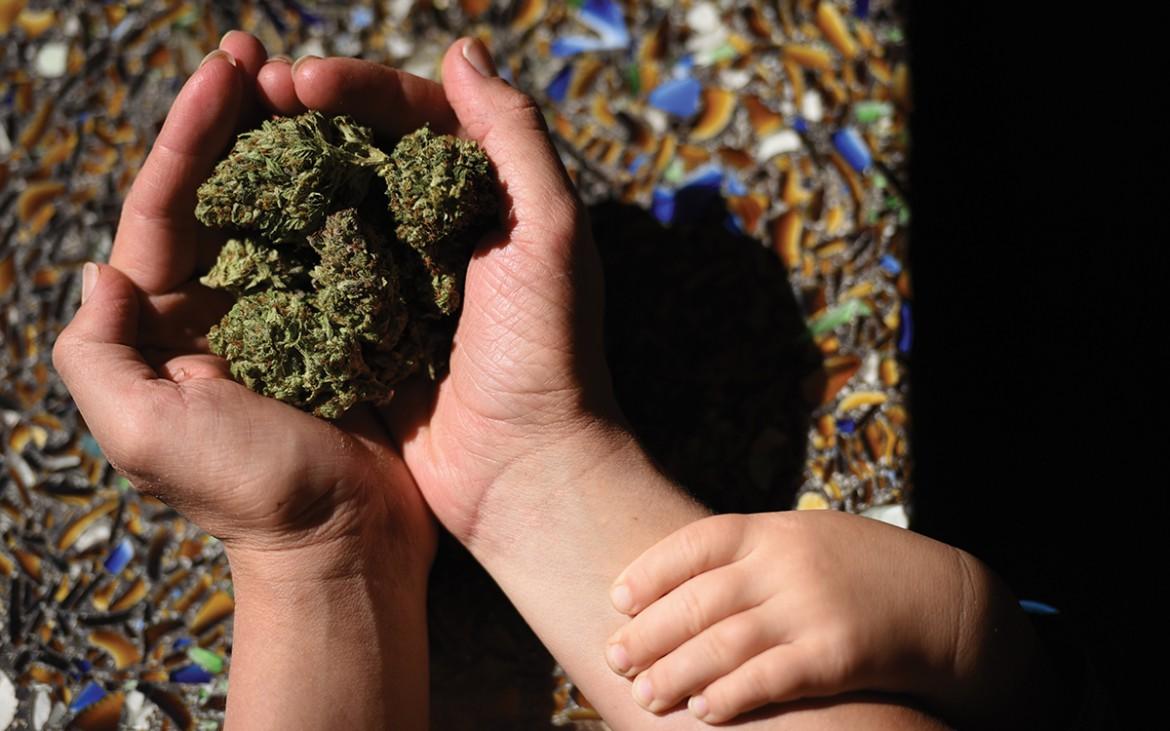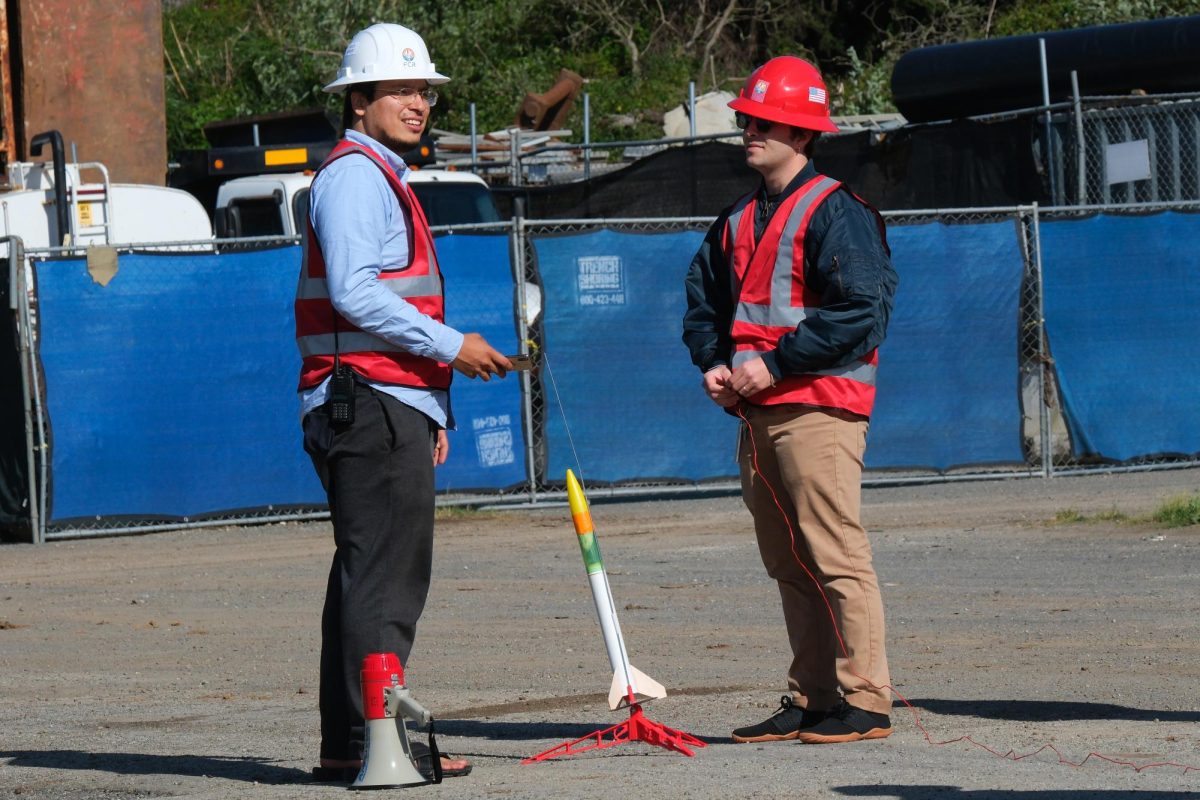With her son’s hand on her arm, Leah, owner of a Trinity County farm, presents her family’s crop.
A Rockwellian portrait of the new American farm.
Photography and story by David Henry
Editor’s Note: To protect the identities of the sources interviewed for this story, last names have been omitted and pseudonyms have been used.
Before sunrise, the house stirred. Two young boys sat at the dining room table as farm fresh eggs and sausage patties cooked on a cast iron skillet. Mason-jarred, raw milk from a neighboring farm was poured into glasses for the boys and coffee for the parents. By the time a rooster called out in the distance, the five-year-old and Jerry, his father, were off on their daily school and work-week commute down the mountain.
Leah, the mother, made her morning rounds, feeding the pigs, dogs, kittens, turkeys and chickens. As Leah headed back inside, she stopped to greet the international crew of trimmers as they rounded the orchard toward the driveway.
Onboard the trucks were two Australians, three Brazilians, one Spaniard and a Parisian. It was early autumn, harvest time was just a few weeks away and the crew of young men and women was set to spend the daylight hours pruning the story-high, story-wide marijuana plants rooted in the garden just up the road.
In the emerald triangle, which consists of Mendocino, Humboldt and Trinity counties, family-style marijuana farms are not uncommon. This is a contradiction to what most may envision, vagabond-hippie-based operations, for example. However, life on these family farms mirrors that of small, traditional farms in the U.S. The cash crop is unorthodox. But factor out the crop and the lifestyles adequately resemble one another.
[widgetkit id=12786]
Many newcomers in the trade start as trimmers. During harvest season, trimmers looking for work line many of the public squares and main streets in the emerald triangle. According to Leah, they come from all over. The Midwest, the South, Europe, Australia and Vietnam are common locations of origin.
“We call them trimmigrants,” Leah said. “Many come here to work, fall in love and never leave.”
Other trimmers, like Mike, a Bay Area-based musician, traveled north for the harvest in order to make extra money and catch up with old friends. During Mike’s visit, he, Jerry and Leah spent evenings socializing, smoking, drinking local rum and eating meals comprised of fresh-picked ingredients from the garden.
One evening, Mike took it upon himself to subject Leah to the popular tastes of the outside world. He screened a number of popular music videos for her. Trap music, such as Nicki Minaj’s “Anaconda” and Sophia Grace’s “Best Friends” blared out of Mike’s smart phone. At the conclusion of Mike’s presentation, all Leah had to say was, “I am so happy I’m not raising a daughter.”
Will, a native of Australia, heads operations in Leah and Jerry’s medical marijuana garden. After starting out as a trimmer, he worked his way up through the ranks. He now handpicks the strains, fertilizers and workers for the farm.
Two of the trimmers working under Will, an Australian man and a Parisian woman, spoke of their dream of starting a farm in the south of France. The couple met in Barcelona and immigrated to Humboldt in search of work. While working, the trimmers occasionally passed the time by poking fun at their host country and imitating American accents.
“Why Bessie, it’s as American as apple pie,” the Parisian women drawled in a Southern-belle accent, while the men held up their Pabst Blue Ribbon beer and called out, “‘Murica! Fuck yeah!”
Their sarcastic patriotism could have easily sounded anti-American to an untrained ear, but there was no denying that they appreciated the opportunity that America provided.
“There’s no other place I’d rather be right now,” Will said.
The future for these farms is unclear. Growers in the emerald triangle have been preparing for the day that recreational use is legalized. The prospect of increased competition, supply, lower prices and demand makes legalization a serious economic matter for growers. Marijuana legalization initiatives are gaining momentum in California. In fact, Governor Brown recently signed three bills into California state law, that have been seen as stage setters for legalization. The reality that one of the initiatives will be on the November 2016 ballot has growers considering at least partial overhauls of their operations.
Jerry and Leah are taking steps to create a bed and breakfast, as well as a recording studio and mountain biking trails throughout their square mile of land. According to Jerry, hospitality would take priority in the family business but weed would still have a presence.
Will said growing high-quality, pure strains is key to the industry’s future. He welcomes legalization and believes it will wipe out the amateur operations as well as the Mexican cartel grows. Will believes the triangle’s climate, reputation and quality of product is unparalleled, making way for what he calls the “Napa Valley” of weed.








